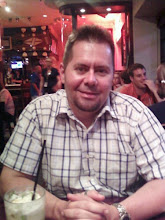I would encourage the reader to peruse a book by Chuck Palahniuk called Choke. Mr. Palahniuk also wrote Fight Club, on which the movie by the same name is based. I won't discuss the plot at length. There is a section that describes the protagonist's experience as a boy walking with his mother and looking at the mountains. The protagonist describes his mother's wish to experience the mountains without the filter of perception. Take a moment to think about that. Read my post titled "The world on a diet" before you go any further, if you haven't already.
We take for granted that the world we absorb through our senses is rock-solid and immutable. We have words for everything. If it exists, it is a noun. If it is some sort of process, it is a verb. We have a slew of adjectives and other parts of speech to spice it up some. The world comes in a variety of shapes, sizes and colors. It is the entire basis for existence.
But this world, and the language that sustains it, is simply the world we can all agree upon. (Believe me, I am not talking about the opinions regarding society-- they are as varied as they come.) It is something that looks more or less the same to everyone and fulfills practical purposes.
A fish swims in the water. A fish is comprised mostly of water. It has no idea what water is, because water is everywhere and there is nothing to contrast it with. We look at fish swimming and see an agent moving freely and independently of its environment. We do this because we perceive the fish's shape and color. Without these perceptions, the fish (which is comprised mostly of water) is more or less like a lump in gravy-- a relatively small variation in the aquatic environment. Yes, it moves, but doesn't a lump in gravy move around when you take a spoon to it?
I had a discussion with someone about the expansion of the universe. The question was asked: what is beyond the edge of the universe? We can come up with plenty of guesses. Every one of those guesses will likely be a flight of fancy. It is about as far removed from our world of understanding as one can get. It was at this point that I developed three classifications in the realm of knowledge:
1. Knowledge that we possess. This is the entire body of scholastic work and/or scientific research accumulated throughout history. Ideally, this would be available to everyone, all of the time.
2. Knowledge we do not possess. This is information about the universe that exists but has not yet been discovered.
3. That which is unknowable. Structures and functions in all of reality need not necessarily have some sort of counterpart in the world of information. The unknowable isn't necessarily hidden-- it simply has no analog that relates to perceived classifications and meaningful language. An example of this is the concept of infinity. We can think long and hard about infinity, but we have no means at all of grasping it. We cannot think in dimensions beyond the four that make up the observable universe. And since all of space and time is a part of our ever-expanding universe, we cannot conceive of what might be beyond its edge. Some things are just totally outside the domain of knowledge and understanding altogether.
For most people, none of this is really a big deal, because they give little attention to knowledge, perception and understanding. With an entire cosmos to explore, they are still concerned with bling, sneakers and iPods!
Sunday, June 8, 2008
Subscribe to:
Post Comments (Atom)

No comments:
Post a Comment